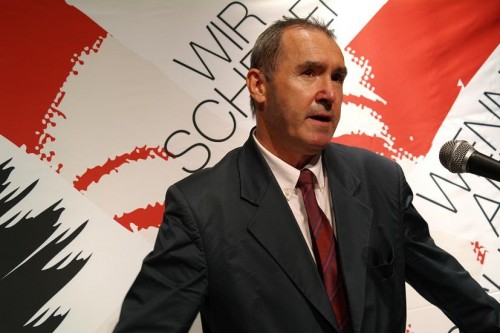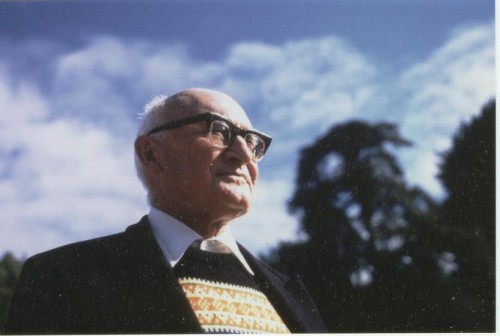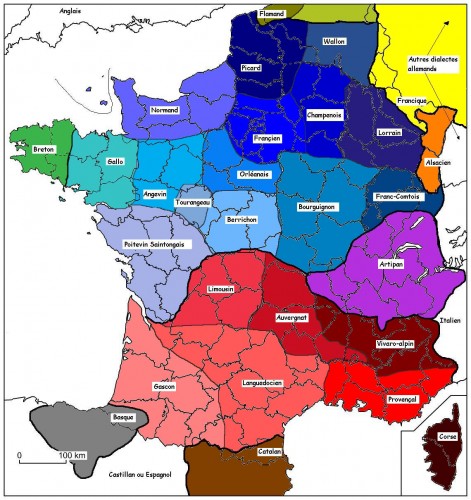Populism seeks to rescue popular government from corrupt elites. Naturally, the elites strike back. The most common accusation from elite commentators is that populism is “anti-democratic.” As Yascha Mounk frames it, populism is “the people vs. democracy.” I argue that populism is not anti-democratic, but it is anti-liberal. (See Donald Thoresen’s review of Mounk’s The People vs. Democracy here [2].)
Many critics of populism accuse it of being a form of white identity politics, and many critics of white identity politics accuse it of being populist. Populism and white identity politics are distinct but sometimes overlapping phenomena. I will argue, however, that populism and white identity politics complement one another, so that the strongest form of white identity politics is populist, and the strongest form of populism is identitarian. But first, we need to clarify what populism really is.
Political Ideology or Political Style?
One of the more superficial claims about populism is that it is not a political ideology but simply a “political style.” An ideology is a set of principles. A political style is a way of embodying and communicating political principles. The idea that populism is merely a political style is based on the observation that there are populisms of the Left and the Right, so how could it be a unified ideology? Of course, there are also liberalisms of the Left and Right, but this does not imply that liberalism is merely a style of politics rather than a political ideology.
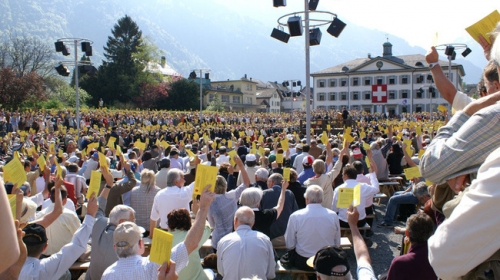
Principles of Populism
Just as Right and Left liberalism appeal to common political principles, Right and Left populists also have the same basic political ideas:
- All populists appeal to the principle of popular sovereignty. Sovereignty means that a people is independent of other peoples. A sovereign nation is master of its own internal affairs. It can pursue its own ends, as opposed to being subordinated to the ends of others, such as a foreign people or a monarch. The sovereignty of the people is the idea that legitimate government is “of the people, by the people, for the people,” meaning that (1) the people must somehow participate in government, i.e., that they govern themselves, and (2) the state acts in the interest of the people as a whole, i.e., for the common good.
- All populists politically mobilize on the premise that popular government has been betrayed by a tiny minority of political insiders, who have arrogated the people’s right to self-government and who govern for their own factional interests, or foreign interests, but not in the interest of the people as a whole. Populists thus declare that the political system is in crisis.
- All populists hold that the sovereignty of the people must be restored (1) by ensuring greater popular participation in politics and (2) by replacing traitorous elites with loyal servants of the people. Populists thus frame themselves as redeeming popular sovereignty from a crisis.
Two Senses of “the People”
When populists say the people are sovereign, they mean the people as a whole. When populists oppose “the people” to “the elites,” they are contrasting the vast majority, who are political outsiders, to the elites, who are political insiders. The goal of populism, however, is to restore the unity of the sovereign people by eliminating the conflict of interests between the elites and the people.
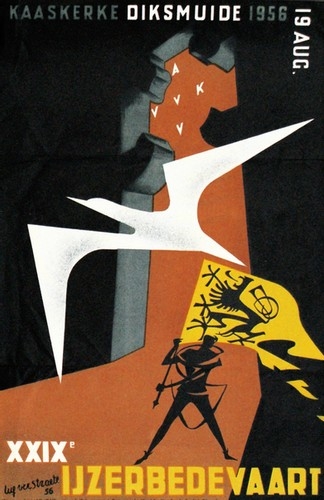
Ethnic and Civic Peoplehood
There are two basic ways of defining a people: ethnic and civic. An ethnic group is unified by blood, culture, and history. An ethnic group is an extended family with a common language and history. Ethnic groups always emerge in a particular place but do not necessarily remain there. A civic conception of peoplehood is a construct that seeks to impose unity on a society composed of different ethnic groups, lacking a common descent, culture, and history. For instance, civic nationalists claim that a person can become British, American, or Swedish simply by government fiat, i.e., by giving them legal citizenship.
Ethnic nationalism draws strength from unity and homogeneity. Ethnically defined groups grow primarily through reproduction, although they have always recognized that some foreigners can be “naturalized”—i.e., “assimilated” into the body politic—although rarely and with much effort. Civic nationalism lacks the strength of unity but aims to mitigate that fact with civic ideology and to offset it with strength in numbers, since in principle the whole world can have identity papers issued by a central state.
A civic people is a pure social construct imposed on a set of particular human beings that need not have anything more in common than walking on two legs and having citizenship papers. Civic conceptions of peoplehood thus go hand in hand with the radical nominalist position that only individuals, not collectives, exist in the real world.
An ethnic people is much more than a social construct. First of all, kinship groups are real biological collectives. Beyond that, although ethnic groups are distinguished from other biologically similar groups by differences of language, culture, and history, there is a distinction between evolved social practices like language and culture and mere legislative fiats and other social constructs.
Ethnic peoples exist even without their own states. There are many stateless peoples in the world. But civic peoples do not exist without a state. Civic polities are constructs of the elites that control states.
Populism and Elitism
Populism is contrasted with elitism. But populists are not against elites as such. Populists oppose elites for two main reasons: when they are not part of the people and when they exploit the people. Populists approve of elites that are organically part of the people and function as servants of the people as a whole.
Populists recognize that people differ in terms of intelligence, virtue, and skills. Populists want to have the best-qualified people in important offices. But they want to ensure that elites work for the common good of the polity, not for their own factional interests (or foreign interests). To ensure this, populists wish to empower the people to check the power of elites, as well as to create new elites that are organically connected to the people and who put the common good above their private interests. (For more on this, see my “Notes on Populism, Elitism, and Democracy [9].”)
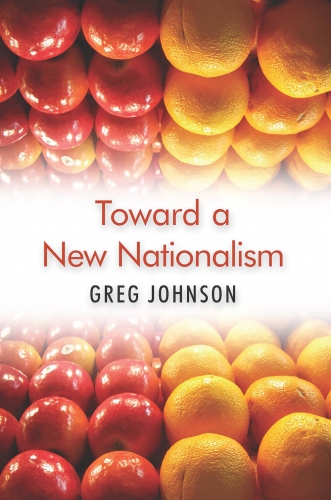
Populism and Classical Republicanism
When political scientists and commentators discuss the history of populism, most begin with nineteenth-century agrarian movements like the Narodniki in Russia and the People’s Party in the United States. But nineteenth-century populism looked backward to the republics of the ancient world, specifically the “mixed regime” of Rome.
Aristotle’s Politics is the most influential theory of the mixed regime. (See my “Introduction to Aristotle’s Politics” here [10].) Aristotle observed that a society can be ruled by one man, a few men, or many men. But a society can never be ruled by all men, since every society inevitably includes people who are incapable of participating in government due to lack of ability, for instance the very young, the crazy, and the senile.
Aristotle also observed that the one, few, or many could govern for their factional interests or for the common good. When one man governs for the common good, we have monarchy. When he governs for his private interests, we have tyranny. When few govern for the common good, we have aristocracy. When the few govern for their private interests, we have oligarchy. When the many govern for the common good, we have polity. When they govern for their factional interests, we have democracy.
It is interesting that for Aristotle, democracy is bad by definition, and that he had to invent a new word, “polity,” for the good kind of popular rule that was, presumably, so rare that nobody had yet coined a term for it.
Aristotle recognized that government by one man or few men is always government by the rich, regardless of whether wealth is used to purchase political power or whether political power is used to secure wealth. Thus popular government always empowers those who lack wealth. The extremely poor, however, tend to be alienated, servile, and greedy. The self-employed middle classes, however, have a stake in the future, long-time horizons, and sufficient leisure to participate in politics. Thus popular government tends to be stable when it empowers the middle classes and chaotic when it empowers the poorest elements.
Finally, Aristotle recognized that a regime that mixes together rule by the one, the few, and the many, is more likely to achieve the common good, not simply because each group is public spirited, but also because they are all jealous to protect their private interests from being despoiled by the rest. Aristotle was thus the first theorist of the “mixed regime.” But he was simply observing the functioning of actually existing mixed regimes like Sparta.
One can generate modern populism quite easily from Aristotle’s premises. Aristotle’s idea of the common good is the basis of the idea of popular sovereignty, which means, first and foremost, that legitimate government must look out for the common good of the people.
Beyond that, Aristotle argued that the best way to ensure legitimate government is to empower the many—specifically the middle class—to participate in government. The default position of every society is to be governed by the one or the few. When the elites govern selfishly and oppress the people, the people naturally wish to rectify this by demanding participation in government. They can, of course, use their power simply to satisfy their factional interests, which is why democracy has always been feared. But if popular rule is unjust, it is also unstable. Thus to be stable and salutary, popular rule must aim at the common good of society.
The great theorist of popular sovereignty is Jean-Jacques Rousseau. In his On the Social Contract, Rousseau claims that the General Will is the fount of sovereignty and legitimacy. What is the General Will? The General Will wills the common good. The common good is not a convention or construct of the General Will but rather an objective fact that must be discovered and then realized through political action.
Rousseau distinguishes the General Will from the Will of All. The General Will is what we ought to will. The Will of All is what we happen to will. The Will of All can be wrong, however. Thus we cannot determine the General Will simply by polling the people.
Rousseau even holds out the possibility that an elite, or a dictator, can know the General Will better than the populace at large. But no matter how the General Will is determined—and no matter who controls the levers of power—political legitimacy arises from the common good of the people.
Populism and Representation
Populism is often associated with “direct” as opposed to “representative” democracy. Populists tend to favor referendums and plebiscites, in which the electorate as a whole decides on important issues, as opposed to allowing them to be decided by representatives in parliament. In truth, though, there is no such thing as direct democracy in which the whole of the people acts. Even in plebiscites, some people always represent the interests of others. Thus democracy always requires some degree of representation.
One can only vote in the present. But a people is not just its present members. It also consists of its past members and its future members. Our ancestors matter to us. They created a society and passed it on to us. They established standards by which we measure ourselves. And just as our ancestors lived not just for themselves, but for their posterity, people today make decisions that affect future generations. Thus in every democratic decision, the living must represent the interests of the dead and the not yet born.
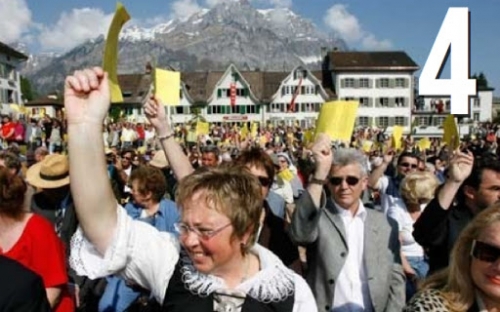
Moreover, within the present generation, some are too young to participate in politics. Others are unable due to disability. The basic principle for excluding living people from the electorate is that they would lower the quality of political decision-making. However, they are still part of the people, and they have genuine interests. Thus the electorate must represent their interests as well.
Beyond that, there are distinctions among competent adults that may lead to further constriction of the electorate, again to raise the quality of political decision-making. For instance, people have argued that the franchise should be restricted to men (because they are the natural guardians of society or because they are more rational than women), or to people with property (because they have more to lose), or to people with children (because they have a greater stake in the future), or to military veterans (because they have proven themselves willing to die, if necessary, for the common good). But again, all of those who are excluded from the franchise are still part of the people, with interests that must be respected. So they must be represented by the electorate.
Thus even in a plebiscite, the people as a whole is represented by only a part, the electorate. Beyond that, unless voting is mandatory, not every member of the electorate will choose to vote. So those who do not vote are represented by those who do.
Thus far, this thought experiment has not even gotten to the question of representative democracy, which takes the process one step further. An elected representative may stand for hundreds of thousands or millions of voters. And those voters in turn stand for eligible non-voters, as well as those who are not eligible to vote, and beyond that, those who are not present to vote because they are dead or not yet born. The not-yet-born is an indefinite number that we hope is infinite, meaning that our people never dies. It seems miraculous that such a multitude could ever be represented by a relative handful of representatives (in the US, 535 Representatives and Senators for more than 300 million living people and untold billions of the dead and yet-to-be-born). Bear in mind, also, that practically every modern politician will eagerly claim to be really thinking about the good of the entire human race.
But we have not yet scaled the highest peak, for people quite spontaneously think of the president, prime minister, or monarch—a single individual—as representing the interests of the entire body politic. Even if that is not their constitutional role, there are circumstances—such as emergencies—in which such leaders are expected to intuit the common good and act accordingly.
Thus it is not surprising that cynics wish to claim that the very ideas of a sovereign people, a common good, and the ability to represent them in politics are simply myths and mumbo-jumbo. Wouldn’t it be better to replace such myths with concrete realities, like selfish individuals and value-neutral institutions that let them peacefully pursue their own private goods?
But the sovereign individual and the “invisible hand” are actually more problematic than the sovereign people and its avatars. From direct democracy in small towns to the popular uprisings that brought down communism, we have actual examples of sovereign peoples manifesting themselves and exercising power. We have actual examples of leaders representing a sovereign people, divining the common good, and acting to secure it.
There is no question that sovereign peoples actually exercise power for their common goods. But how it happens seems like magic. This explains why popular sovereignty is always breaking down. Which in turn explains why populist movements keep arising to return power to the people.
Populism and Democracy
The claim that populism is anti-democratic is false. Populism simply is another word for democracy, understood as popular sovereignty plus political empowerment of the many. Current elites claim that populism threatens “democracy” because they are advocates of specifically liberal democracy. (See my review of Jan-Werner Mueller’s What Is Populism? here [15] and William Galston’s Anti-Pluralism here [16].)
Liberal democrats claim to protect the rights of the individual and of minorities from unrestrained majoritarianism. Liberal democrats also defend “pluralism.” Finally, liberal democrats insist that the majority is simply not competent to participate directly in government, thus they must be content to elect representatives from an established political class and political parties. These representatives, moreover, give great latitude to unelected technocrats in the permanent bureaucracy.
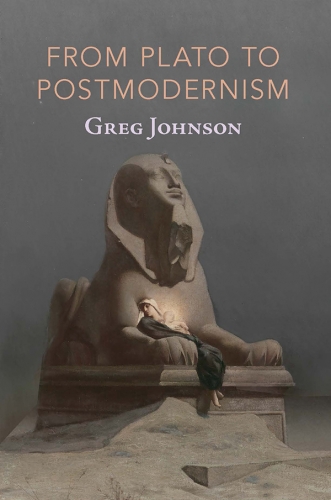
Liberal democracy is, in short, anti-majoritarian and elitist. Populists recognize that such regimes can work for the public good, as long as the ruling elites are part of the people and see themselves as its servants. But without the oversight and empowerment of the people, there is nothing to prevent liberal democracy from mutating into the rule of corrupt elites for their private interests and for foreign interests. This is why populism is on the rise: to root out corruption and restore popular sovereignty and the common good.
Populists need not reject liberal protections for individuals and minorities, ethnic or political. They need not reject “pluralism” when it is understood as freedom of opinion and multiparty democracy. Populists don’t even reject elites, political representation, and technocratic competence. Populists can value all of these things. But they value the common good of the people even more, and they recognize that liberal values don’t necessarily serve the common good. When they don’t, they need to be brought into line. Liberals, however, tend to put their ideology above the common good, leading to the corruption of popular government. Ideological liberalism is a disease of democracy. Populism is the cure.
Populism and White Identity Politics
What is the connection between populism and white identity politics? I am both a populist and an advocate of white identity politics. But there are advocates of white identity politics who are anti-populist (for instance, those who are influenced by Traditionalism and monarchism), and there are non-white populists around the world (for instance, Rodrigo Duterte in the Philippines and Thaksin Shinawatra in Thailand).
However, even if there is no necessary connection between populism and white identity politics, I wish to argue that the two movements should work together in every white country. White identitarians will be strengthened by populism, and populism will be strengthened by appeals to white identity.
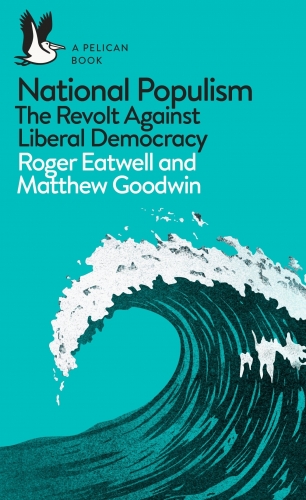
Why should white identitarians align ourselves with populism? Roger Eatwell and Matthew Goodwin argue in National Populism: The Revolt Against Liberal Democracy that the rise of national populism is motivated by what they call “the Four Ds.” The first is Distrust, namely the breakdown of public trust in government. The second is Destruction, specifically the destruction of identity, the destruction of the ethnic composition of their homelands due to immigration and multiculturalism. The third trend is Deprivation, referring to the collapse of First-World living standards, especially middle-class and working-class living standards, due to globalization. The final trend is Dealignment, meaning the abandonment of the center-Left, center-Right duopolies common in post-Second World War democracies. (For more on Eatwell and Goodwin, see my “National Populism Is Here to Stay [18].”)
The Destruction of identity due to immigration and multiculturalism is a central issue for white identitarians. The Deprivation caused by globalization is also one of our central issues. The only way to fix these problems is to adopt white identitarian policies, namely to put the interests and identity of indigenous whites first. Once that principle is enshrined, everything we want follows as a matter of course. It is just a matter of time and will.
As for Distrust and Dealignment, these can go for or against us, but we can certainly relate to them, and we can contribute to and shape them as well.
Eatwell and Goodwin argue that the “Four Ds” are longstanding and deep-seated trends. They will be affecting politics for decades to come. National populism is the wave of the future, and we should ride it to political power.
Why do populists need to appeal to white identity? It all comes down to what counts as the people. Is the people at its core an ethnic group, or is it defined in purely civic terms? Populists of the Right appeal explicitly or implicitly to identitarian issues. Populists of the Left prefer to define the people in civic or class terms and focus on economic issues. Since, as Eatwell and Goodwin argue, both identitarian and economic issues are driving the rise of populism, populists of the Right will have a broader appeal because they appeal to both identity and economic issues.
The great task of white identitarians today is to destroy the legitimacy of civic nationalism and push the populism of the Right toward explicit white identitarianism.
If you want to support our work, please send us a donation by going to our Entropy page [19] and selecting “send paid chat.” Entropy allows you to donate any amount from $3 and up. All comments will be read and discussed in the next episode of Counter-Currents Radio, which airs every Friday.
Don’t forget to sign up [20] for the twice-monthly email Counter-Currents Newsletter for exclusive content, offers, and news.



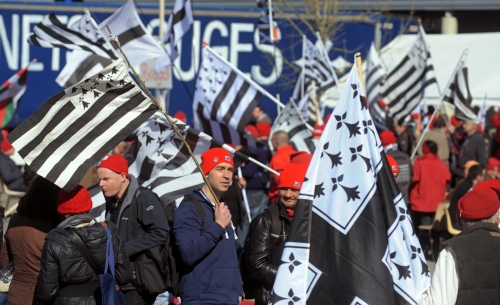

 del.icio.us
del.icio.us
 Digg
Digg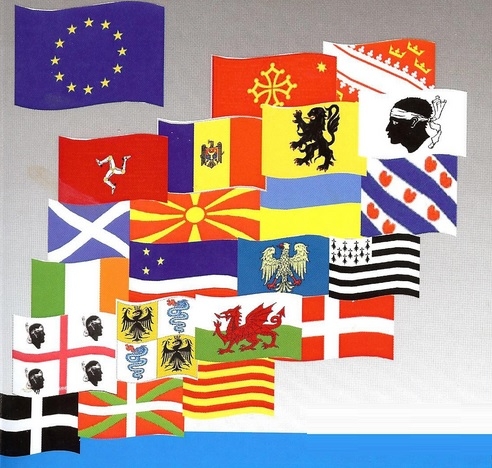
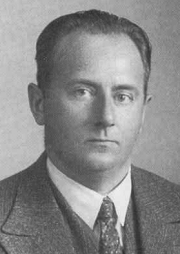 Douwe Kalma opposait l’idée d’une Grande Frise à celle d’une Grande Néerlande, en exprimant de la sorte les liens, qu’il ressentait comme réels et charnels, entre les Frisons des Pays-Bas et ceux de Frise septentrionale et de Frise orientale qui vivaient sous les administrations allemande et danoise. Simultanément, il plaidait pour une Grande Frise qui aurait eu pour fonction de faire pont entre la Scandinavie et l’Angleterre, afin de lier des peuples qui, selon lui, étaient très proches depuis longtemps et qui présentaient certaines affinités mentales. Pour pouvoir donner forme à cette fonction de pont, la Frise, selon Kalma, devait réclamer une plus grande autonomie ; il fallait, pour cela, que ses compatriotes soient culturellement structurés.
Douwe Kalma opposait l’idée d’une Grande Frise à celle d’une Grande Néerlande, en exprimant de la sorte les liens, qu’il ressentait comme réels et charnels, entre les Frisons des Pays-Bas et ceux de Frise septentrionale et de Frise orientale qui vivaient sous les administrations allemande et danoise. Simultanément, il plaidait pour une Grande Frise qui aurait eu pour fonction de faire pont entre la Scandinavie et l’Angleterre, afin de lier des peuples qui, selon lui, étaient très proches depuis longtemps et qui présentaient certaines affinités mentales. Pour pouvoir donner forme à cette fonction de pont, la Frise, selon Kalma, devait réclamer une plus grande autonomie ; il fallait, pour cela, que ses compatriotes soient culturellement structurés.
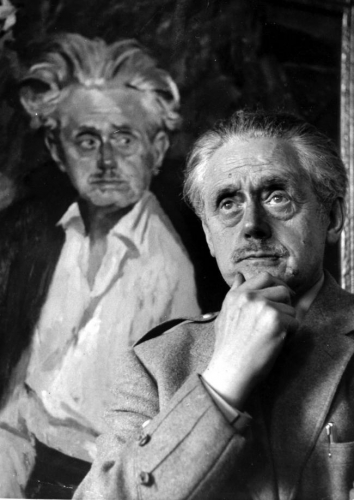
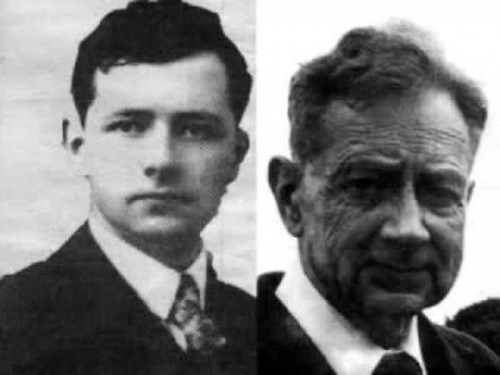
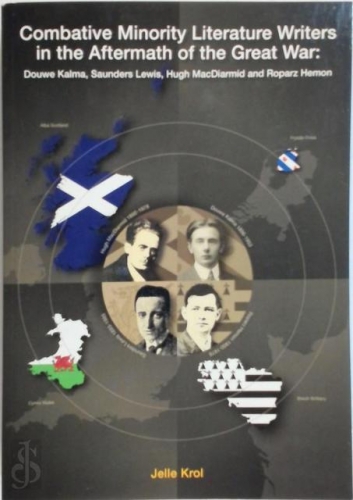

 As Peter Thiel argues persuasively in
As Peter Thiel argues persuasively in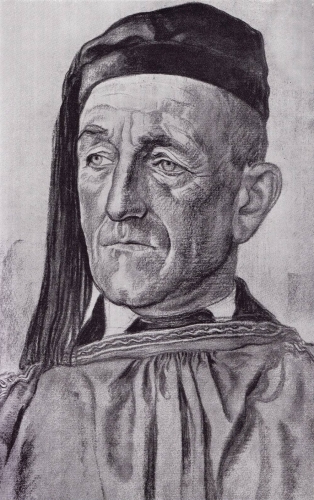 Of course workers who are replaced by machines can’t be allowed to starve. The products of machines have to be consumed by someone. Production can be automated but consumption cannot. It would be an absurdist dystopia if mechanization led to the starvation of workers, so consumption had to be automated as well. One set of robots would produce things, then another set of robots would consume them and add zeroes to the bank balances of a few lonely plutocrats.
Of course workers who are replaced by machines can’t be allowed to starve. The products of machines have to be consumed by someone. Production can be automated but consumption cannot. It would be an absurdist dystopia if mechanization led to the starvation of workers, so consumption had to be automated as well. One set of robots would produce things, then another set of robots would consume them and add zeroes to the bank balances of a few lonely plutocrats.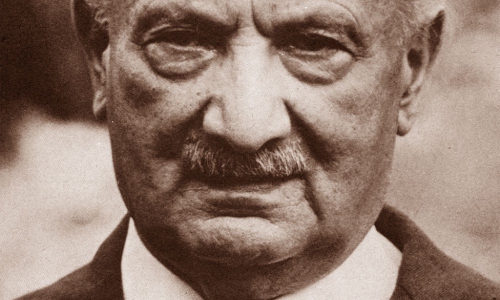
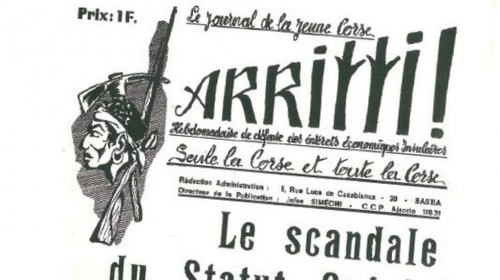
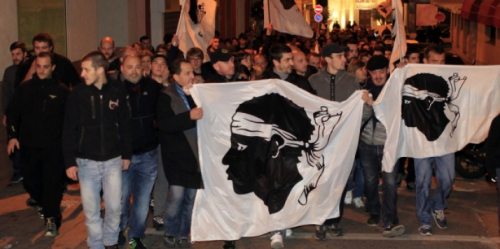
 Nel febbraio 1943, in Sardegna, fu costituito un Battaglione Corso, inquadrato nella 73° Legione Camice Nere. Questo episodio rappresentò il culmine della collaborazione tra corsi e italiani. Dopo l’8 settembre, ancor prima della rioccupazione della Corsica da parte delle truppe golliste, fu sequestrato dai partigiani locali e in seguito condannato a morte il colonnello Petru Simone Cristofini, con l’accusa di aver collaborato con le autorità italiane e tedesche presenti sull’isola e per aver fornito informazioni sulla resistenza locale. Venne fucilato ad Algeri nel novembre 1943, dopo che il colonnello ebbe tentato il suicidio lanciandosi da una finestra del tribunale al quarto piano. Sua moglie, Marta Renucci, prima donna in Corsica a fare la giornalista, fu condannata a cinque anni di reclusione, che dovette scontare nelle carceri di Algeri, i beni dei coniugi vennero confiscati. Con le stesse accuse furono condannati a morte il colonnello Pantalacci ed il figlio Antoine, che però riuscirono a fuggire in tempo in Italia. Un altro colonnello, Pascal Mondielli, fu condannato all’ergastolo per collaborazionismo. Dopo l’otto settembre, Petru Giovacchini (foto) affidò l’organizzazione irredentista a Giuseppe Mastroserio e si trasferì al Nord per arruolarsi nella Rsi insieme agli amici Angeli e Poli. Non tornarono più in Francia, pendendo sulla loro testa la pena di morte.
Nel febbraio 1943, in Sardegna, fu costituito un Battaglione Corso, inquadrato nella 73° Legione Camice Nere. Questo episodio rappresentò il culmine della collaborazione tra corsi e italiani. Dopo l’8 settembre, ancor prima della rioccupazione della Corsica da parte delle truppe golliste, fu sequestrato dai partigiani locali e in seguito condannato a morte il colonnello Petru Simone Cristofini, con l’accusa di aver collaborato con le autorità italiane e tedesche presenti sull’isola e per aver fornito informazioni sulla resistenza locale. Venne fucilato ad Algeri nel novembre 1943, dopo che il colonnello ebbe tentato il suicidio lanciandosi da una finestra del tribunale al quarto piano. Sua moglie, Marta Renucci, prima donna in Corsica a fare la giornalista, fu condannata a cinque anni di reclusione, che dovette scontare nelle carceri di Algeri, i beni dei coniugi vennero confiscati. Con le stesse accuse furono condannati a morte il colonnello Pantalacci ed il figlio Antoine, che però riuscirono a fuggire in tempo in Italia. Un altro colonnello, Pascal Mondielli, fu condannato all’ergastolo per collaborazionismo. Dopo l’otto settembre, Petru Giovacchini (foto) affidò l’organizzazione irredentista a Giuseppe Mastroserio e si trasferì al Nord per arruolarsi nella Rsi insieme agli amici Angeli e Poli. Non tornarono più in Francia, pendendo sulla loro testa la pena di morte.
 Met het overlijden van Christian Dutoit (1956-2016) verliest de radicale Vlaamse beweging een van zijn meest markante figuren.
Met het overlijden van Christian Dutoit (1956-2016) verliest de radicale Vlaamse beweging een van zijn meest markante figuren.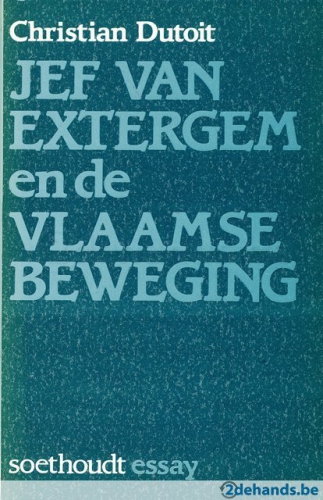 Christian heeft zijn leven lang in de traditie van de Baskische eetclubs - waar de ‘abertzale’ Basken (de Baskisch patriotten/nationalistisch gezinden) samen kwamen om te koken en te discussiëren - geijverd voor een soortgelijke formule.
Christian heeft zijn leven lang in de traditie van de Baskische eetclubs - waar de ‘abertzale’ Basken (de Baskisch patriotten/nationalistisch gezinden) samen kwamen om te koken en te discussiëren - geijverd voor een soortgelijke formule.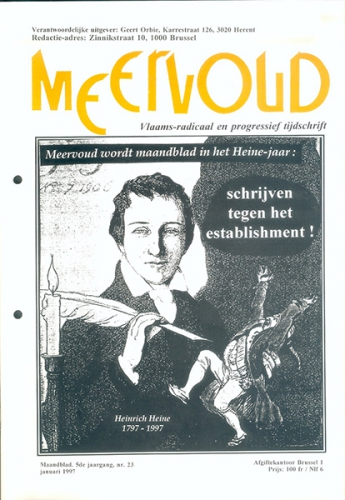 Na de doorbraak van het Vlaams Blok bij de parlementsverkiezingen van november 1991, startte Christian Dutoit in het najaar van 1992 opnieuw met de uitgave van het tijdschrift Meervoud dat het ondertussen al 218 nummers volhoudt. Meervoud kan beschouwd worden als een poging tot bundeling van linkse flaminganten die na het verdwijnen van initiatieven als Het Pennoen en De Nieuwe geen spreekbuis meer hadden. Het maandblad noemt zich nu een links Vlaams-nationaal blad noemt, is eerder een opiniërend blad dat vanuit een eigen kritische, en progressieve maar tegelijkertijd ook radicaal-flamingantische invalshoek de actualiteit onder de loep neemt.
Na de doorbraak van het Vlaams Blok bij de parlementsverkiezingen van november 1991, startte Christian Dutoit in het najaar van 1992 opnieuw met de uitgave van het tijdschrift Meervoud dat het ondertussen al 218 nummers volhoudt. Meervoud kan beschouwd worden als een poging tot bundeling van linkse flaminganten die na het verdwijnen van initiatieven als Het Pennoen en De Nieuwe geen spreekbuis meer hadden. Het maandblad noemt zich nu een links Vlaams-nationaal blad noemt, is eerder een opiniërend blad dat vanuit een eigen kritische, en progressieve maar tegelijkertijd ook radicaal-flamingantische invalshoek de actualiteit onder de loep neemt.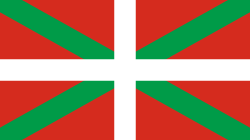 Dutoit was naast publicist ook een prominente dwarsligger. Ik herinner me nog levendig zijn poging bij de parlementsverkiezingen van mei 1995 om in Wallonië op te komen met een lijst VLAAMS. VLAAMS stond voor: Volontaires Linguistiques à l'accélération du Mouvement Social. Het was een kwinkslag naar de francofonie en was erop gericht om de Union Francophone (UF) van antwoord te dienen. Het had alles te maken met de niet-splitsing van het kiesarrondissement Brussel-Halle-Vilvoorde. De Franstaligen konden in BHV voor de Europese en Senaatsverkiezingen stemmen ronselen. Met de lijst VLAAMS dienden Christian en co een lijst in Wallonië in om stemmen te ronselen. Dat is een van de vele akkefietjes waar de groep rond Christian de hand in had.
Dutoit was naast publicist ook een prominente dwarsligger. Ik herinner me nog levendig zijn poging bij de parlementsverkiezingen van mei 1995 om in Wallonië op te komen met een lijst VLAAMS. VLAAMS stond voor: Volontaires Linguistiques à l'accélération du Mouvement Social. Het was een kwinkslag naar de francofonie en was erop gericht om de Union Francophone (UF) van antwoord te dienen. Het had alles te maken met de niet-splitsing van het kiesarrondissement Brussel-Halle-Vilvoorde. De Franstaligen konden in BHV voor de Europese en Senaatsverkiezingen stemmen ronselen. Met de lijst VLAAMS dienden Christian en co een lijst in Wallonië in om stemmen te ronselen. Dat is een van de vele akkefietjes waar de groep rond Christian de hand in had.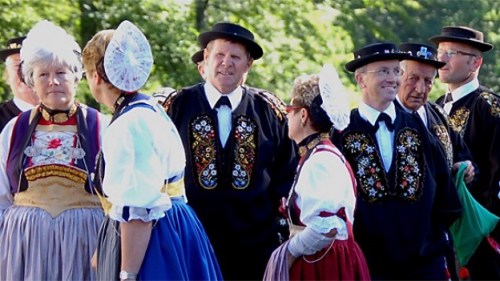
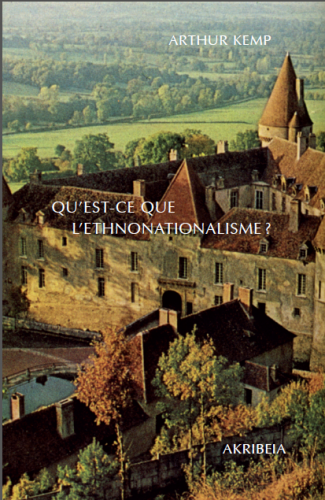 Infatigable militant de la cause pro-Blanche, Arthur Kemp est un activiste aux multiples talents : journaliste, directeur d'Ostara Publications, ancien porte-parole des Affaires étrangères du British National Party (BNP), il est l'auteur de plusieurs ouvrages dont le célèbre March of the Titans: a history of the White Race. Jusqu'à maintenant, un seul de ses travaux avait été édité en français : Bâtir le foyer blanc. En voici un second, toujours publié chez Akribéia et qui se présente sous la forme d'un petit manuel concis (une cinquantaine de pages) destiné à expliciter la notion d'ethnonationalisme. Initialement publiée en 2008 sous le nom Folk & Nation. Ethnonationalism Explained, la présente étude avait été conçue à l'origine pour la formation des militants et cadres du BNP sur la délicate question des relations inter-raciales.
Infatigable militant de la cause pro-Blanche, Arthur Kemp est un activiste aux multiples talents : journaliste, directeur d'Ostara Publications, ancien porte-parole des Affaires étrangères du British National Party (BNP), il est l'auteur de plusieurs ouvrages dont le célèbre March of the Titans: a history of the White Race. Jusqu'à maintenant, un seul de ses travaux avait été édité en français : Bâtir le foyer blanc. En voici un second, toujours publié chez Akribéia et qui se présente sous la forme d'un petit manuel concis (une cinquantaine de pages) destiné à expliciter la notion d'ethnonationalisme. Initialement publiée en 2008 sous le nom Folk & Nation. Ethnonationalism Explained, la présente étude avait été conçue à l'origine pour la formation des militants et cadres du BNP sur la délicate question des relations inter-raciales.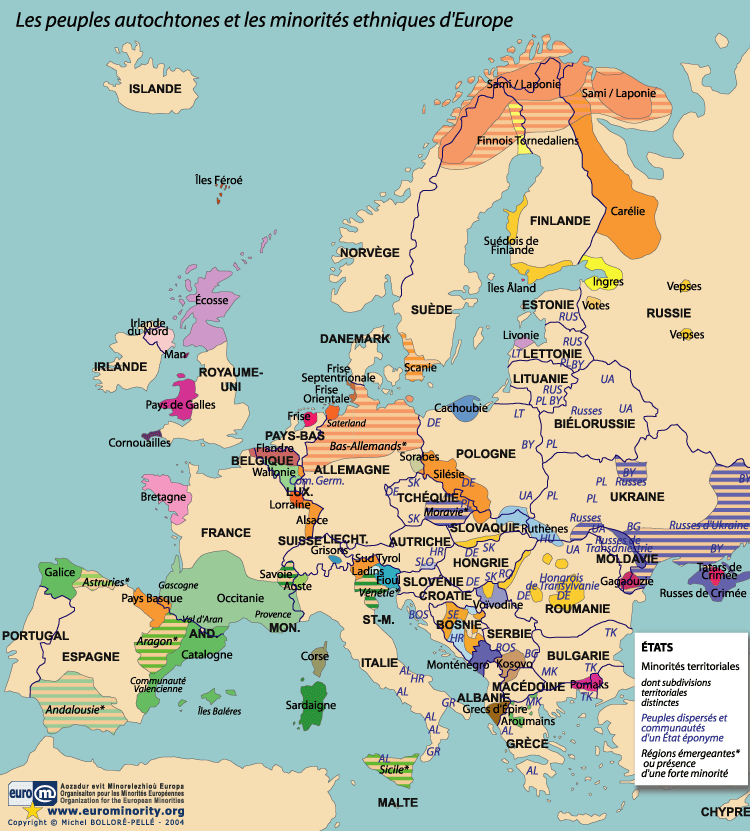
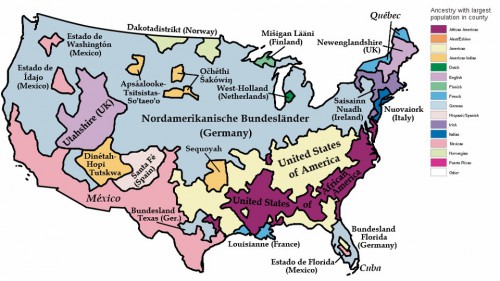
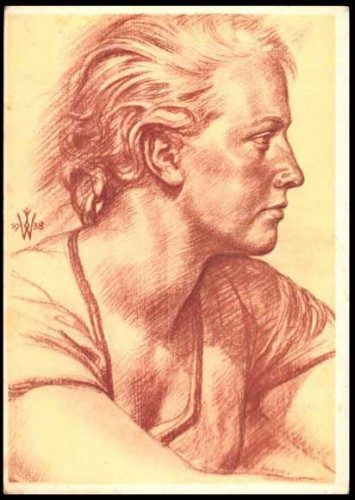 Come già scritto, l’etnonazionalismo si rifà al federalismo etnico, forma modernizzata del nazionalismo etnico e dell’ideologia völkisch. Tale ideologia assegna la priorità alla tutela del Volk, inteso come comunità di Sangue e Suolo. L’etnicità costituisce per noi etnonazionalisti il criterio fondante della nazione, che prende corpo attraverso la forza del Sangue. Il singolo individuo è subordinato al volere della Volksgemeinschaft, della comunità etnica. Nella visione etnonazionalista la mappa geopolitica dell’Europa deve essere ridisegnata, attraverso la nascita di una Federazione europea etnica, costituita da Regioni-Stato, etnicamente omogenee. Ecco perché nel nostro edificio etnocentrico non vi è posto per lo Stato nazionale etnicamente eterogeneo.
Come già scritto, l’etnonazionalismo si rifà al federalismo etnico, forma modernizzata del nazionalismo etnico e dell’ideologia völkisch. Tale ideologia assegna la priorità alla tutela del Volk, inteso come comunità di Sangue e Suolo. L’etnicità costituisce per noi etnonazionalisti il criterio fondante della nazione, che prende corpo attraverso la forza del Sangue. Il singolo individuo è subordinato al volere della Volksgemeinschaft, della comunità etnica. Nella visione etnonazionalista la mappa geopolitica dell’Europa deve essere ridisegnata, attraverso la nascita di una Federazione europea etnica, costituita da Regioni-Stato, etnicamente omogenee. Ecco perché nel nostro edificio etnocentrico non vi è posto per lo Stato nazionale etnicamente eterogeneo.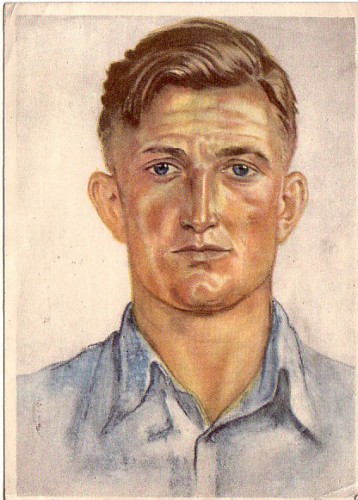 La forza di tale pensiero risiede proprio nella profonda carica emotiva e passionale che era (è) capace di trasmettere. Dunque la teoria völkisch, termine che in italiano si traduce in “etnonazionale”, sostiene la prevalenza di una concezione della cittadinanza che contrappone “das Volk” a “the people”, e fa sì che in Germania si sia applicato lo jus sanguinis, il diritto del Sangue: cittadino tedesco era solo chi discendeva da genitori tedeschi, parlava tedesco e propagava la cultura tedesca. Per noi etnonazionalisti lo jus sanguinis è un punto fermo, irrinunciabile.
La forza di tale pensiero risiede proprio nella profonda carica emotiva e passionale che era (è) capace di trasmettere. Dunque la teoria völkisch, termine che in italiano si traduce in “etnonazionale”, sostiene la prevalenza di una concezione della cittadinanza che contrappone “das Volk” a “the people”, e fa sì che in Germania si sia applicato lo jus sanguinis, il diritto del Sangue: cittadino tedesco era solo chi discendeva da genitori tedeschi, parlava tedesco e propagava la cultura tedesca. Per noi etnonazionalisti lo jus sanguinis è un punto fermo, irrinunciabile.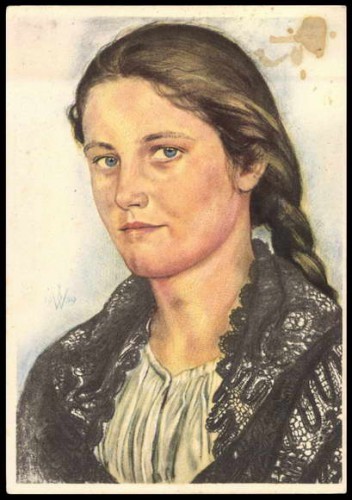 Nostro punto di riferimento culturale sono:
Nostro punto di riferimento culturale sono: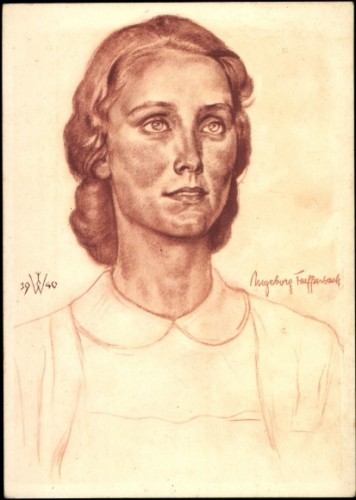 Egli doveva “come la pianta mettere radici nel suolo per prendere parte alla forza primigenia, eternamente rinnovantesi della terra”. “Vogliamo far diventare di nuovo il sangue e il suolo il fondamento di una politica agraria tedesca chiamata a far risorgere il “contadinato” e con ciò superare le idee del 1789, cioè le idee del liberalismo. Perché le idee del 1789 rappresentano una Weltanschauung che nega la razza, l’adesione al contadinato invece è il nucleo centrale di una Weltanschauung che riconosce il concetto di razza. Intorno al contadinato si scindono gli spiriti del liberalismo da quelli del pensiero völkisch”. Tra i molti importanti esponenti del pensiero völkisch vi furono: Julius Langbehn (Rembrandt als Erzieher), Paul de Lagarde (Deutsche Schriften), il movimento dei Wandervoegel, W. Schwaner (Aus heiligen Schriften germanischer Völker), Hermann Ahlwardt (Der Verzweiflungskampf der arischen Völker mit dem Judentum), Artur Dinter (Die Sünde wider das Blut), H.F.K. Guenther (Rassenkunde des deutschen Volkes, Rassenkunde Europas, Rassengeschichte des hellenischen und des römischen Volkes), Friederich Naumann, Alfons Stoecker e infine Georg Ritter von Schönerer.
Egli doveva “come la pianta mettere radici nel suolo per prendere parte alla forza primigenia, eternamente rinnovantesi della terra”. “Vogliamo far diventare di nuovo il sangue e il suolo il fondamento di una politica agraria tedesca chiamata a far risorgere il “contadinato” e con ciò superare le idee del 1789, cioè le idee del liberalismo. Perché le idee del 1789 rappresentano una Weltanschauung che nega la razza, l’adesione al contadinato invece è il nucleo centrale di una Weltanschauung che riconosce il concetto di razza. Intorno al contadinato si scindono gli spiriti del liberalismo da quelli del pensiero völkisch”. Tra i molti importanti esponenti del pensiero völkisch vi furono: Julius Langbehn (Rembrandt als Erzieher), Paul de Lagarde (Deutsche Schriften), il movimento dei Wandervoegel, W. Schwaner (Aus heiligen Schriften germanischer Völker), Hermann Ahlwardt (Der Verzweiflungskampf der arischen Völker mit dem Judentum), Artur Dinter (Die Sünde wider das Blut), H.F.K. Guenther (Rassenkunde des deutschen Volkes, Rassenkunde Europas, Rassengeschichte des hellenischen und des römischen Volkes), Friederich Naumann, Alfons Stoecker e infine Georg Ritter von Schönerer.
